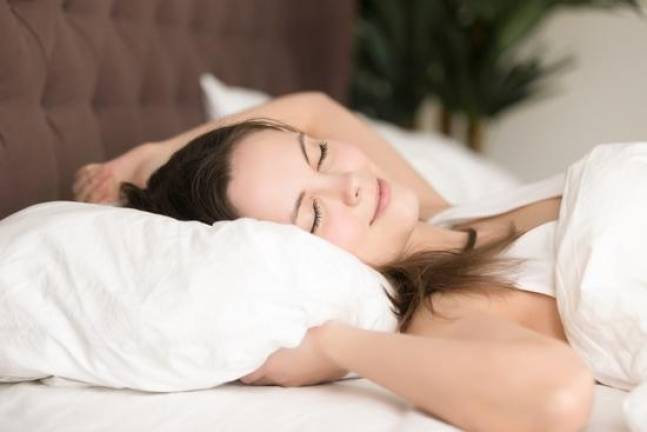Four ways to get better sleep
Prescription or over-the-counter sleep aids can help you drift off, but these drugs also have side effects. Try simple lifestyle changes to help you sleep better.

People with insomnia struggle to get a good night's rest and wonder how to sleep better They may be plagued by trouble falling asleep, unwelcome awakenings during the night, or fitful sleep — alone or in combination. They may feel drowsy during the day and yet be unable to nap. Insomnia can leave a person feeling anxious and irritable or forgetful and unable to concentrate.
Finding an effective solution requires uncovering the cause. Nearly half of insomnia cases stem from psychological or emotional issues. Stressful events, mild depression, or an anxiety disorder can make falling asleep and staying asleep difficult. Ideally, once the underlying cause is treated, the insomnia improves.
When you wake up in the morning, are you refreshed and ready to go, or groggy and grumpy? For many people, the second scenario is all too common.
The first-line of treatment? Behavioral changes.
If you are having trouble sleeping or sleeping well, the following four techniques may help you sleep better:
1. Sleep restriction
Fight the tendency to spend a lot of time in bed with the hope of falling asleep. In reality, less time in bed helps you to sleep better and make the bedroom a welcome sight instead of a torture chamber.
2. Reconditioning
A few simple steps can help people with insomnia to associate the bedroom with sleep instead of sleeplessness and frustration. For example, use the bed only for sleeping or sex and go to bed only when you're sleepy. If you're unable to sleep, move to another room and do something relaxing. Stay up until you are sleepy, and then return to bed. If sleep does not follow quickly, repeat.
3. Relaxation techniques
A racing or worried mind is the enemy of sleep. Sometimes physical tension is to blame. Techniques to quiet a racing mind — such as meditation, breathing exercises, progressive muscle relaxation, and biofeedback — can help you sleep better.
4. Cognitive behavioral therapy (CBT)
CBT for insomnia aims to change the negative thoughts and beliefs about sleep into positive ones. People with insomnia tend to become preoccupied with sleep and apprehensive about the consequences of poor sleep. This worry makes relaxing and falling asleep nearly impossible. The basic tenets of this therapy include setting realistic goals and learning to let go of inaccurate thoughts that can interfere with sleep.
Better sleep, naturally
The world looks very different at 3 a.m. when you're lying in bed staring at the ceiling or the clock. "How will I make it through tomorrow without any sleep?" you worry. You may wonder how to sleep better every night. If you regularly can't get to sleep — or stay asleep — and it's affecting you during the day, then you may have insomnia.
Prescription or over-the-counter sleep aids can help you drift off, but these drugs also have side effects. These include morning drowsiness, which can make activities like driving or using machinery dangerous, and an increased risk for falling. There are other ways to sleep better than medications.
Try simple lifestyle changes to help you sleep better, recommends Dr. Hadine Joffe, associate professor of psychiatry at Harvard Medical School. Two good tips to help you sleep better include avoiding caffeine and sticking to a regular sleep schedule. If these steps don't help you sleep better, it's worth a call to your doctor to see if a medical condition — such as thyroid problems, anemia, sleep apnea, menopausal hot flashes, heartburn, incontinence, or depression — is affecting the quality or the quantity of your sleep. Treating the health problem may take care of the sleep problem.
Source: Harvard Medical School: health.harvard.edu